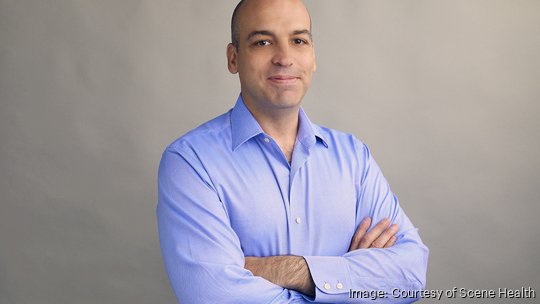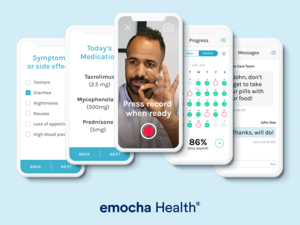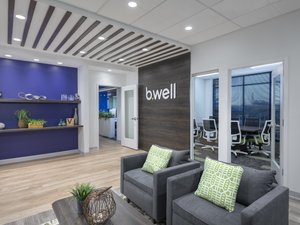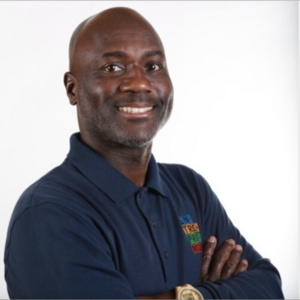
A Baltimore startup that helps get patients to take their medications has raised one of the largest funding rounds in Baltimore so far this year.
Scene Health announced Wednesday the closure of a $17.7 million series B round led by ABS Capital Partners with participation from Claritas Health Ventures, Healthworx, the innovation arm of CareFirst BlueCross BlueShield, PTX Capital and Kapor Capital. The company is planning to move into an office in North Baltimore this year after it closed its Mount Vernon office during the pandemic.
The series B round comes two years after Scene, previously known as emocha Health, raised a $6.2 million series A. The $17.7 million round is one of the largest in Greater Baltimore this year. Other local startups that have raised large rounds during a down year for venture capital include Canton startup Apkudo's $37.5 million series C and Baltimore-based Sunstone Credit's $20 million series A round.
Scene currently has 720 customers, mostly Medicare and Medicaid providers and public health providers.
Scene increases medication adherence through personal engagement and coaching. The startup's staff interacts with patients through daily video exchanges and texts to see if they are taking their medication. Half of people on chronic medications fail to take their medications properly, with medication non-adherence accounting for 25% of hospitalizations each year in the U.S., according to a 2018 study.
Scene focuses on chronic conditions like asthma and sickle cell anemia. CEO Sebastian Seiguer wants to expand by applying Scene's technology to other diseases, such as by helping recovering addicts use methadone properly and ensuring mentally ill people stay on their medications. Seiguer also plans to add a new chief medical officer to expand Scene's work with Medicaid and Medicare providers.
Tools that improve medication adherence have a mixed clinical track record since products like phone reminders don’t address the actual problems that lead patients to stop their medication. Simply forgetting to take medication is not as big of a factor in medication adherence as issues like side effects, financial barriers or patients taking the wrong dosage, Seiguer said.
"If it was just [patient] behavior, the problem would be solved," Seiguer added.
Scene uses the standard of care at a hospital and applies it to the patients in their homes to get a better result than a simple phone reminder application. In a hospital, a nurse or other medical professional watches the patient take medication and can quickly see if the patient is taking the right dosage or using the right technique, similar to how Scene staff watch a video of a patient taking their medication.
"All we've done is take this process and executed every little piece of it into the digital world," Seiguer said.
Medicare and Medicaid health plans and public health departments are Scene's main customers since the company was born out of Johns Hopkins University public health research in Uganda. A benefit of working in the Medicaid space is that cost, one of the main obstacles to people taking medication on time, is less of a factor than if Scene was working with employer-provided plans with larger co-pays, Segiuer said. There are still barriers but they tend to be more indirect, like someone having complications from a medication since they are not eating enough food.
The data Scene collects and analyzes after the funding round will be used to help health care plans learn what programs, like transportation to and from a pharmacy, could impact patient outcomes, Seiguer said.
"We're passing videos back and forth between our team and the patient," Seiguer said. "It just turns into a conversation between two people. We learn so many things about that patient. This information can be used in a very practical way to guide the use of health plan resources to help that patient."










